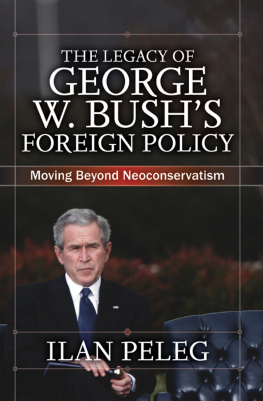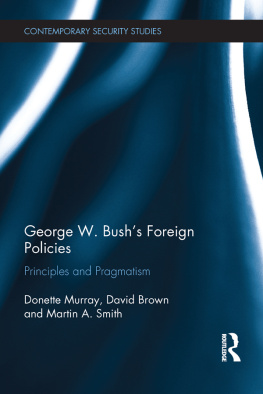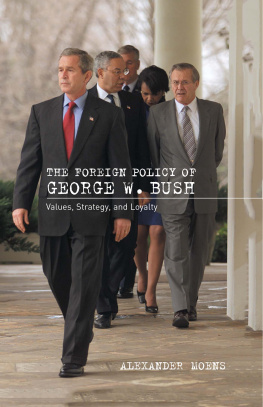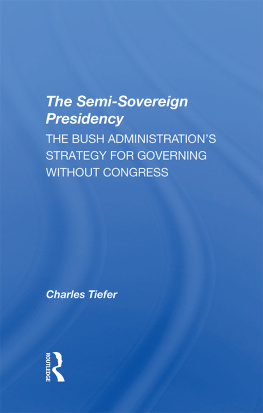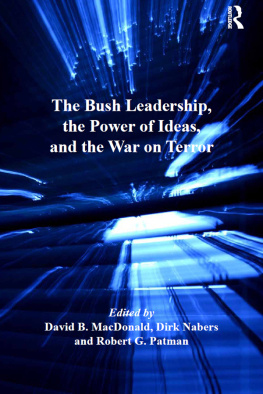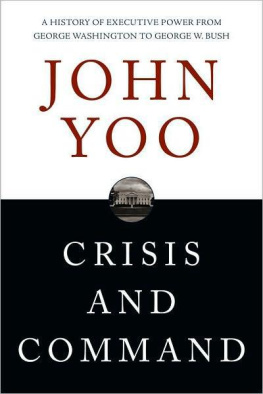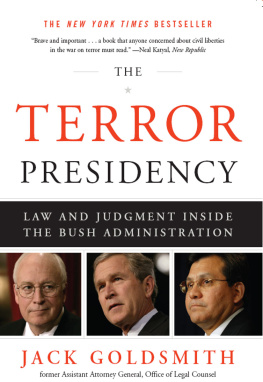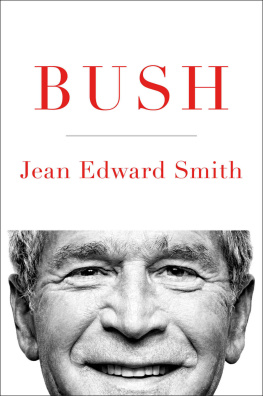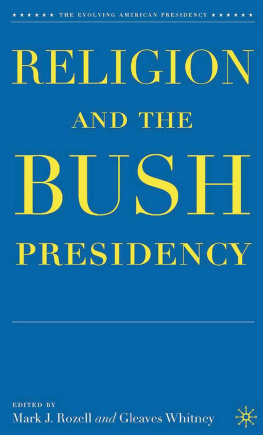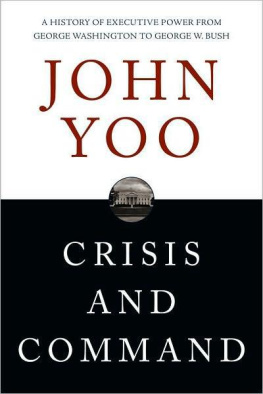Stephen F. Knott - Rush to Judgment: George W. Bush, the War on Terror, and His Critics
Here you can read online Stephen F. Knott - Rush to Judgment: George W. Bush, the War on Terror, and His Critics full text of the book (entire story) in english for free. Download pdf and epub, get meaning, cover and reviews about this ebook. City: Lawrence, year: 2014, publisher: University Press of Kansas, genre: Science / Politics. Description of the work, (preface) as well as reviews are available. Best literature library LitArk.com created for fans of good reading and offers a wide selection of genres:
Romance novel
Science fiction
Adventure
Detective
Science
History
Home and family
Prose
Art
Politics
Computer
Non-fiction
Religion
Business
Children
Humor
Choose a favorite category and find really read worthwhile books. Enjoy immersion in the world of imagination, feel the emotions of the characters or learn something new for yourself, make an fascinating discovery.

- Book:Rush to Judgment: George W. Bush, the War on Terror, and His Critics
- Author:
- Publisher:University Press of Kansas
- Genre:
- Year:2014
- City:Lawrence
- Rating:5 / 5
- Favourites:Add to favourites
- Your mark:
Rush to Judgment: George W. Bush, the War on Terror, and His Critics: summary, description and annotation
We offer to read an annotation, description, summary or preface (depends on what the author of the book "Rush to Judgment: George W. Bush, the War on Terror, and His Critics" wrote himself). If you haven't found the necessary information about the book — write in the comments, we will try to find it.
In this provocative book, Knott offers a measured critique of the professoriate for its misuse of scholarship for partisan political purposes, a defense of the Hamiltonian perspective on the extent and use of executive power, and a rehabilitation of Bushs reputation from a national security viewpoint. He argues that Bushs conduct as chief executive was rooted in a tradition extending as far back as George Washington-not an imperial presidency but rather an activist one that energetically executed its constitutional prerogatives.
Given that one of the main indictments of Bush focuses on his alleged abuse of presidential war power, Knott takes on academic critics like Sean Wilentz and Arthur Schlesinger Jr. and journalists like Charlie Savage to argue instead that Bush conducted the War on Terror in a manner faithful to the Framers intent-that in situations involving national security he rightly assumed powers that neither Congress nor the courts can properly restrain. Knott further challenges Bushs detractors for having applied a relatively recent, revisionist understanding of the Constitution in arguing that Bushs actions were out of bounds.
Ultimately, Knott makes a worthy case that, while Bush was not necessarily a great president, his national security policies were in keeping with the practices of Americas most revered presidents and, for that reason alone, he deserves a second look by those who have condemned him to the ash heap of history. All readers interested in the presidency and in American history writ large will find Rush to Judgment a deftly argued, perhaps deeply unsettling, yet balanced account of the Bush presidencyand a clarion call for a reexamination of how scholars determine presidential greatness and failure.
Stephen F. Knott: author's other books
Who wrote Rush to Judgment: George W. Bush, the War on Terror, and His Critics? Find out the surname, the name of the author of the book and a list of all author's works by series.

